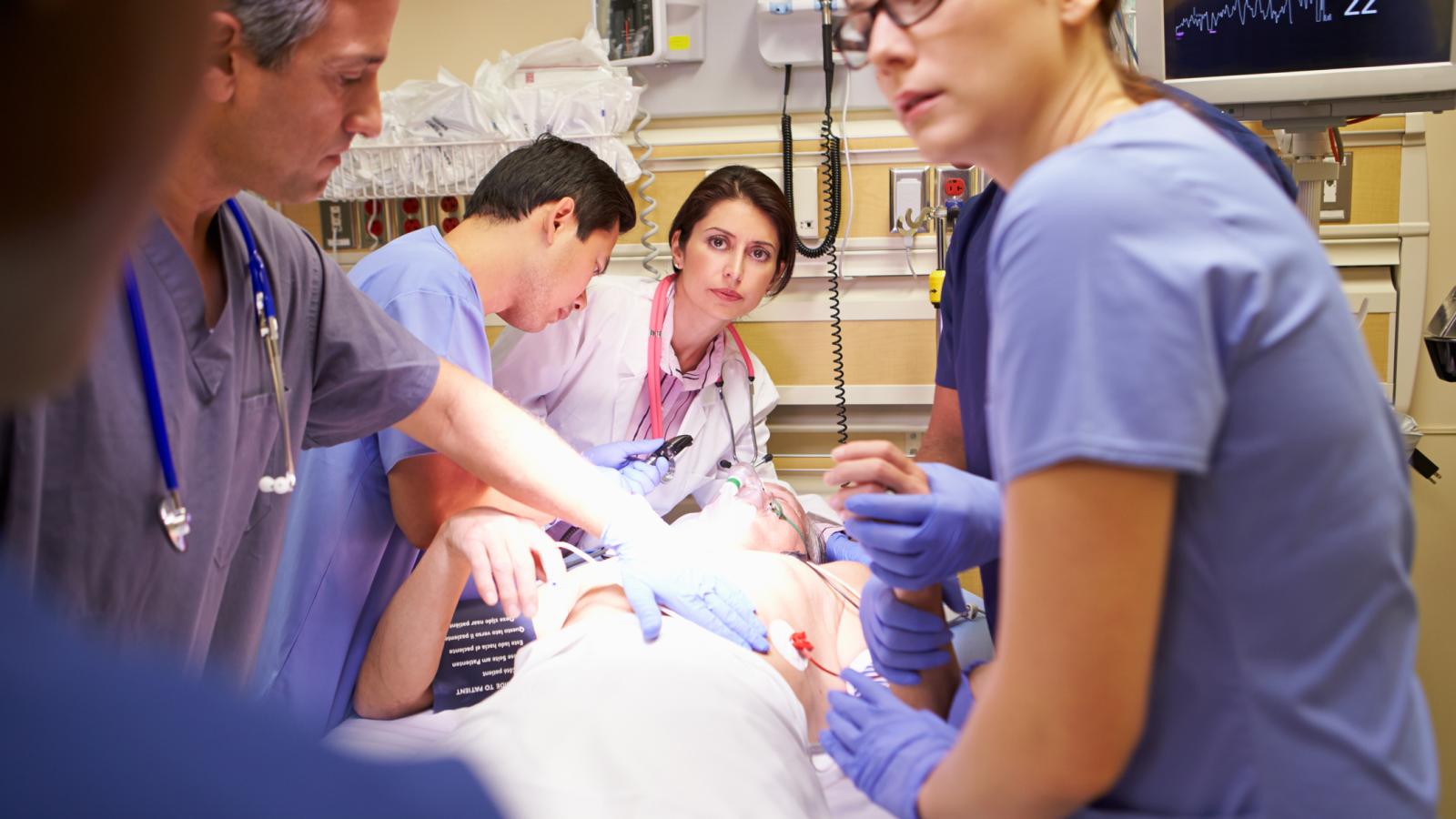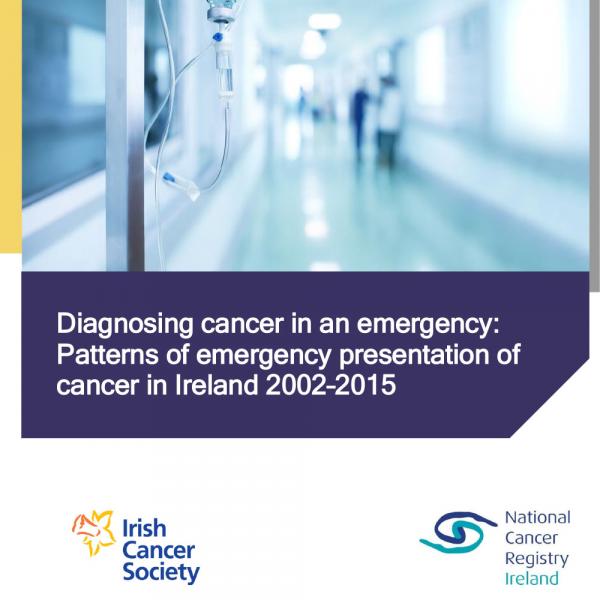Diagnosing cancer in an emergency

In 2017, the Irish Cancer Society commissioned the National Cancer Registry of Ireland (NCRI) to look at the proportion of cancers being diagnosed via emergency presentation in hospital.
The report, entitled, Diagnosing cancer in an emergency: Patterns of emergency presentation of cancer in Ireland 2002-2015 revealed that 14% or 3,000 of the 22,000 invasive cancers diagnosed in Ireland every year are diagnosed via an emergency. Of these cancers, over 3 in 4 are already at an advanced stage. We know that a late stage cancer diagnosis limits treatment options and reduces chances of a successful outcome.
This is the first time in Ireland we have been able to see this data.
The research, published jointly with the NCRI, in March 2018, also shows:
- Cancer patients from the most disadvantaged communities are 50% more likely to be diagnosed via emergency presentation than those from the most affluent communities.
- Nearly 3 out of 4 emergency cases involve patients over 65 compared with just over half of elective cases, and older patients are twice as likely to present as emergencies.
- Certain cancers, including pancreas (34%), liver (34%), brain/central nervous system (34%) leukaemia (27%), lung (26%), ovary (24%), colon (22%) and stomach (20%), had an especially high proportion of emergency presentations.

The National Cancer Strategy 2017-2026 aims to reduce the proportion of cancers diagnosed in Emergency Departments by 50% by 2026.
In Diagnosing cancer in an emergency the Irish Cancer Society has proposed a number of actions to tackle emergency presentation of cancer, and most importantly, save lives. We are calling on the Department of Health and the National Cancer Control Programme to take up these actions as part of the implementation of the National Cancer Strategy.
These actions include:
- Direct access to diagnostics for GPs at secondary care level.
- Reduced public waiting times for access to diagnostic tests for cancer.
- The development of diagnostics in primary and community care settings.
- Targeted public awareness campaigns on the signs and symptoms of cancer.
- Development of a rapid access pathway to treatment for people diagnosed in an emergency.
- A significant incident case review for cancer patients diagnosed as an emergency.
- Further research to better understand the causes of emergency presentation.
If you have been affected by a diagnosis in an emergency department, and would like to speak with a trained cancer nurse, you can call our Cancer Nurseline at 1800 200 700.
For more information
Phone
01 231 0500

